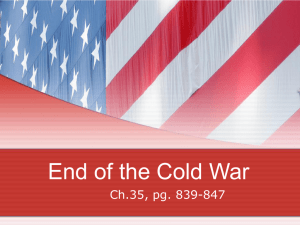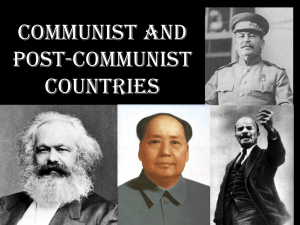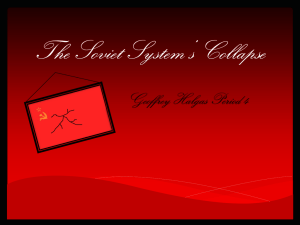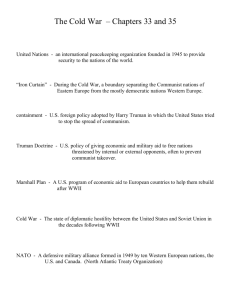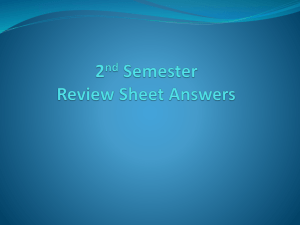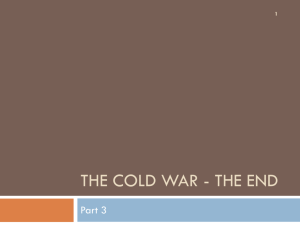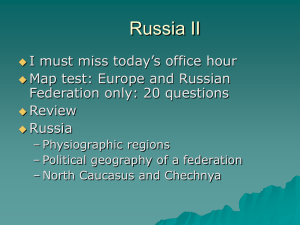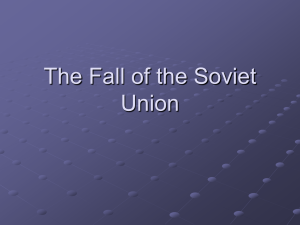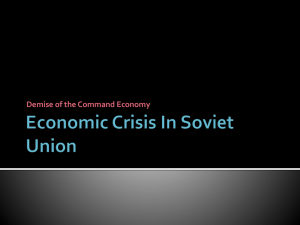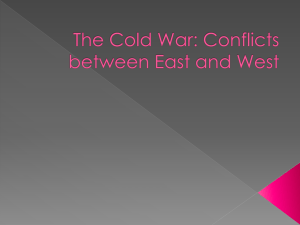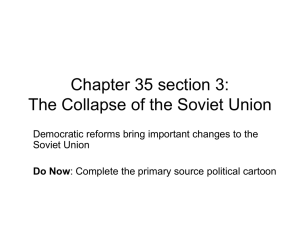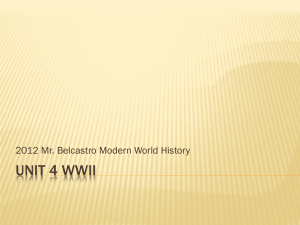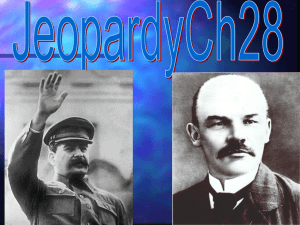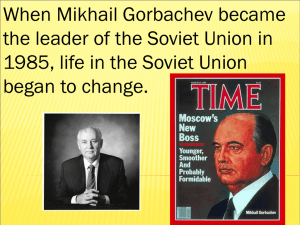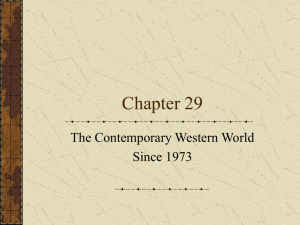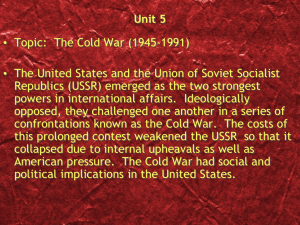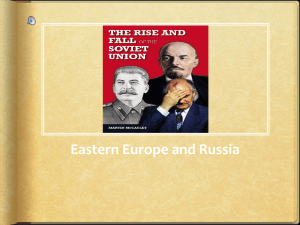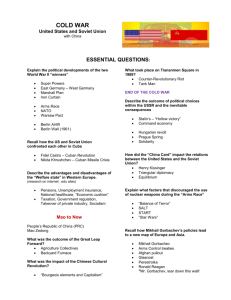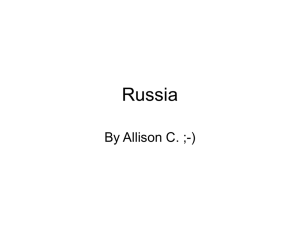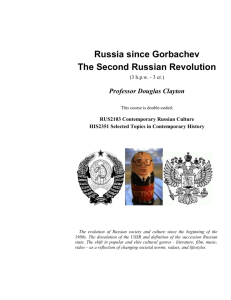The Russian Revolution and the end of Communism
advertisement
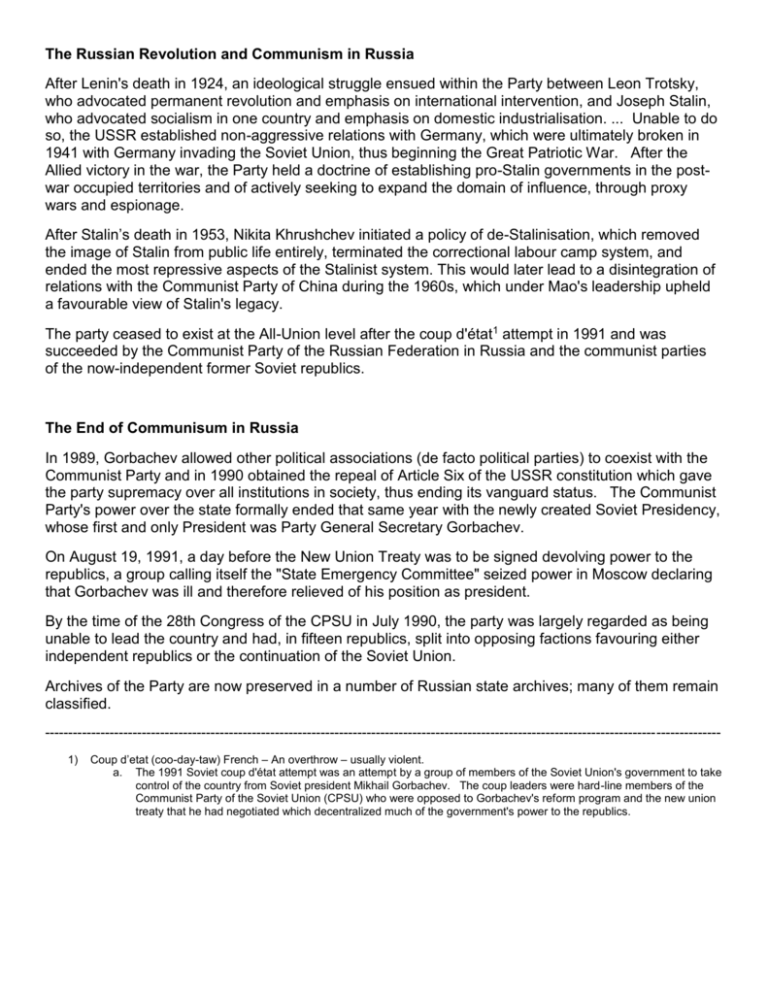
The Russian Revolution and Communism in Russia After Lenin's death in 1924, an ideological struggle ensued within the Party between Leon Trotsky, who advocated permanent revolution and emphasis on international intervention, and Joseph Stalin, who advocated socialism in one country and emphasis on domestic industrialisation. ... Unable to do so, the USSR established non-aggressive relations with Germany, which were ultimately broken in 1941 with Germany invading the Soviet Union, thus beginning the Great Patriotic War. After the Allied victory in the war, the Party held a doctrine of establishing pro-Stalin governments in the postwar occupied territories and of actively seeking to expand the domain of influence, through proxy wars and espionage. After Stalin’s death in 1953, Nikita Khrushchev initiated a policy of de-Stalinisation, which removed the image of Stalin from public life entirely, terminated the correctional labour camp system, and ended the most repressive aspects of the Stalinist system. This would later lead to a disintegration of relations with the Communist Party of China during the 1960s, which under Mao's leadership upheld a favourable view of Stalin's legacy. The party ceased to exist at the All-Union level after the coup d'état1 attempt in 1991 and was succeeded by the Communist Party of the Russian Federation in Russia and the communist parties of the now-independent former Soviet republics. The End of Communisum in Russia In 1989, Gorbachev allowed other political associations (de facto political parties) to coexist with the Communist Party and in 1990 obtained the repeal of Article Six of the USSR constitution which gave the party supremacy over all institutions in society, thus ending its vanguard status. The Communist Party's power over the state formally ended that same year with the newly created Soviet Presidency, whose first and only President was Party General Secretary Gorbachev. On August 19, 1991, a day before the New Union Treaty was to be signed devolving power to the republics, a group calling itself the "State Emergency Committee" seized power in Moscow declaring that Gorbachev was ill and therefore relieved of his position as president. By the time of the 28th Congress of the CPSU in July 1990, the party was largely regarded as being unable to lead the country and had, in fifteen republics, split into opposing factions favouring either independent republics or the continuation of the Soviet Union. Archives of the Party are now preserved in a number of Russian state archives; many of them remain classified. --------------------------------------------------------------------------------------------------------------------------------------------------1) Coup d’etat (coo-day-taw) French – An overthrow – usually violent. a. The 1991 Soviet coup d'état attempt was an attempt by a group of members of the Soviet Union's government to take control of the country from Soviet president Mikhail Gorbachev. The coup leaders were hard-line members of the Communist Party of the Soviet Union (CPSU) who were opposed to Gorbachev's reform program and the new union treaty that he had negotiated which decentralized much of the government's power to the republics.
